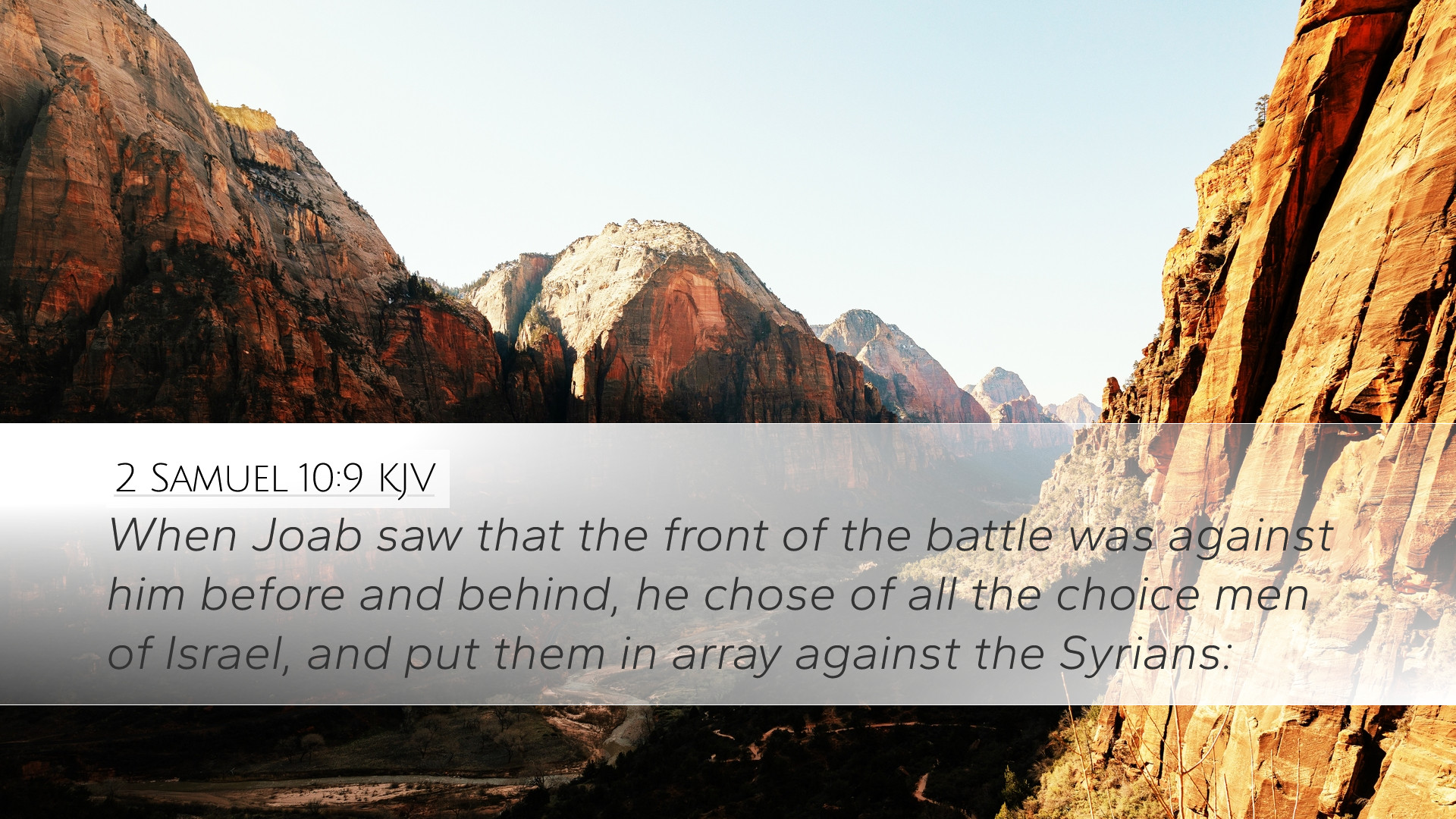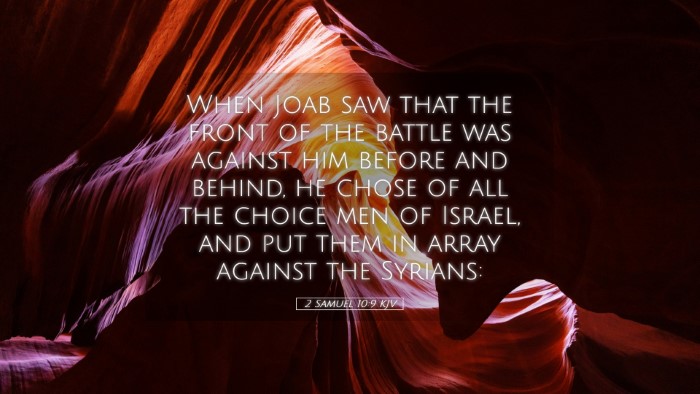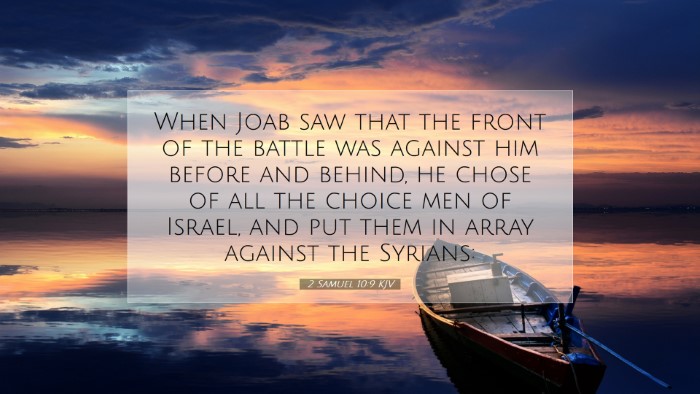Old Testament
Genesis Exodus Leviticus Numbers Deuteronomy Joshua Judges Ruth 1 Samuel 2 Samuel 1 Kings 2 Kings 1 Chronicles 2 Chronicles Ezra Nehemiah Esther Job Psalms Proverbs Ecclesiastes Song of Solomon Isaiah Jeremiah Lamentations Ezekiel Daniel Hosea Joel Amos Obadiah Jonah Micah Nahum Habakkuk Zephaniah Haggai Zechariah Malachi2 Samuel 10:9
2 Samuel 10:9 KJV
When Joab saw that the front of the battle was against him before and behind, he chose of all the choice men of Israel, and put them in array against the Syrians:
2 Samuel 10:9 Bible Commentary
Commentary on 2 Samuel 10:9
Verse Reference: 2 Samuel 10:9 - "When Joab saw that the battle was set against him before and behind, he chose of all the choice men of Israel, and put them in array against the Syrians."
Contextual Background
This verse occurs within a narrative where Joab, David's commander, faces a formidable enemy alliance between the Ammonites and the Syrians. The events capture the dynamics of leadership, warfare, and divine providence within the historical account of Israel's battles.
Joab's situation reflects the broader conflicts faced by David's kingdom, illustrating both military strategy and the tensions between various nations surrounding Israel.
Insights from Matthew Henry
Matthew Henry interprets this verse as a demonstration of Joab's strategic acumen. Faced with threats from multiple fronts, Joab’s choice to select “the choice men of Israel” exemplifies the importance of discernment and leadership in times of crisis.
Henry emphasizes that Joab's decision underscores a spiritual truth: in times of adversity, it is essential to rely on the most skilled and faithful. This choice reflects not only a military strategy but also the underlying faith in God's provision for victory.
Reflections from Albert Barnes
Albert Barnes notes that Joab’s immediate perception of the danger was pivotal. He recognized that the battle on two fronts required rapid and decisive action—a lesson in situational awareness that is crucial for leaders of all kinds.
Barnes elaborates on the significance of Joab's ability to assemble his best troops swiftly. He argues that this reflects the character of a true leader, one who is aware of his surroundings and capable of mobilizing resources effectively to face threats. It demonstrates the balance between human effort and reliance on divine assistance.
Adam Clarke's Analysis
Adam Clarke deepens the understanding of the strategic choices made by Joab by discussing the cultural implications of warfare in ancient Israel. Clarke posits that the division of troops is emblematic of the need for unity in a divided situation, representing a microcosm of Israel’s broader plight against external enemies.
Clarke also points out the theological dimensions of Joab’s actions, noting that every military engagement serves as a backdrop for God's overarching governance. He frames the battle as an arena where the faithfulness of leaders and people alike is put to the test, emphasizing that military might must be coupled with divine favor.
Theological Implications
This verse serves as a reminder to pastors, students, and theologians about the challenges of leadership in crises. Joab embodies the strategic foresight needed to assess situations accurately and respond with faith and action.
The integrity and discernment displayed in selecting “the choice men” highlight the importance of surrounding oneself with capable individuals in ministry and leadership roles.
Practical Applications
- Leadership in Crisis: The necessity of decisive action and the responsiveness of leaders in times of crisis is paramount. One must remain vigilant and discerning in assessing threats and opportunities.
- Choosing Associates: The company we keep can significantly affect outcomes. It is essential to carefully select those around us whom we trust and who possess the necessary skills and character to support our endeavors, be it in ministry or other pursuits.
- Faith in Adversity: Recognizing that battles are not merely fought with physical strength, but also require reliance on God. Leaders should not only strategize but also pray for divine assistance and guidance.
Conclusion
2 Samuel 10:9 presents a multifaceted examination of leadership, strategy, and divine providence. The insights gathered from established commentators like Matthew Henry, Albert Barnes, and Adam Clarke collectively underscore the importance of faithfulness, careful planning, and unity in confronting adversities.
In the complexity of human affairs, especially in leadership, there lies a call to look beyond the immediate challenges to the resourcefulness that comes from faith in God, aligning our strategies with His will.


